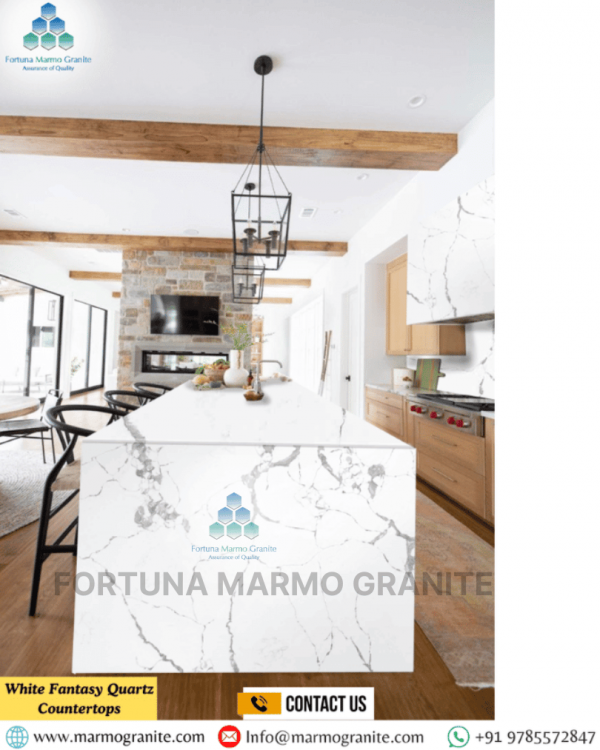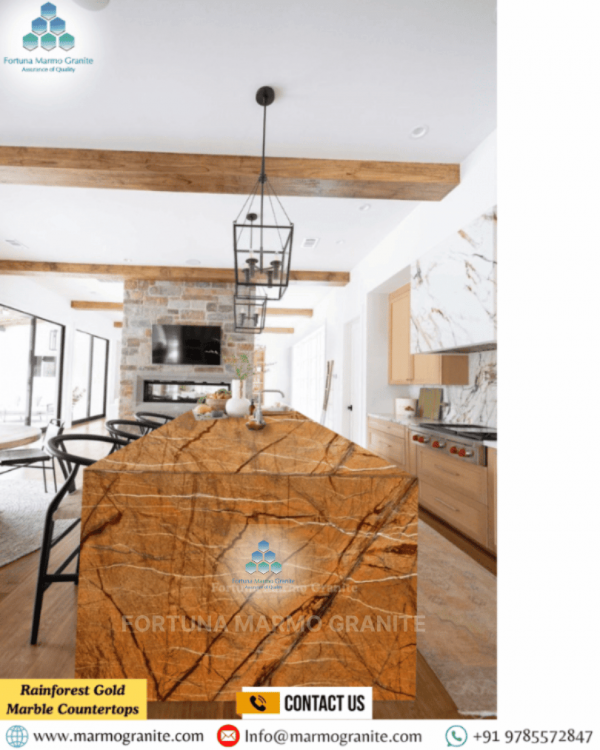Quartz Countertops vs. Marble Countertops : Which Should You Choose?
Quartz Countertops vs. Marble Countertops Choosing the perfect countertop material is a pivotal decision when designing or renovating your kitchen or bathroom, because it significantly impacts not only the visual appeal of the space but also its practicality and long-term usability. In fact, while countertops serve as a central feature in these rooms, their material determines how well they perform under daily wear and tear, exposure to moisture, heat, and frequent cleaning. Therefore, it's not just about aesthetics—although visual harmony with your cabinets, flooring, and overall theme is essential—but also about functionality, durability, ease of maintenance, cost-effectiveness, and how well the surface integrates into your daily routine.
So, when the dilemma arises—Quartz Countertops vs. Marble Countertops: Which Should You Choose?—the answer ultimately depends on your specific priorities and lifestyle demands. On the one hand, quartz offers consistency and resilience; on the other hand, marble provides timeless beauty with unique veining. Quartz Countertops vs. Marble,, This blog will therefore guide you through an in-depth comparison of these two remarkable materials, evaluating their strengths and weaknesses in real-life scenarios. Additionally, By examining everything from design flexibility and heat resistance to cost and cleaning needs, you'll gain a clear understanding of which surface is truly the right fit for your home—a decision that combines style, functionality, and lasting satisfaction.
The Allure of Natural Beauty: Marble Countertops
Pros of Marble Countertops:
- Timeless Aesthetics: There's an undeniable classic beauty to marble. Its natural veining, ranging from subtle whispers to dramatic streaks, adds a sophisticated and opulent touch to any space. The way light interacts with its surface, creating a soft sheen, is truly captivating.
- Unique and Authentic: No two slabs of marble are exactly alike. This means your marble countertop will be truly unique, a one-of-a-kind statement piece that reflects the natural artistry of the earth.
- Increases Home Value: Due to its luxurious appeal and high-end perception, marble countertops can significantly increase the resale value of your home. It's often seen as a premium upgrade.
Cons of Marble Countertops:
Porous and Prone to Staining: Moreover, This is perhaps marble's biggest drawback. Because it is a porous natural stone, it readily absorbs liquids. As a result, spills of acidic substances like wine, citrus juice, or coffee can quickly lead to etching and permanent stains if not wiped up immediately. Therefore, sealing is crucial, although it does not guarantee complete stain protection.
Soft and Susceptible to Etching and Scratching: Yet, Marble is a relatively soft stone compared to granite or quartz. Consequently, it becomes vulnerable to scratches from knives and abrasive cleaners, as well as etching from acids. In fact, even seemingly harmless items like cleaning products with harsh chemicals can damage the surface.
High Maintenance: In contrast, To preserve its beauty, marble requires regular sealing (typically annually or bi-annually, depending on usage) and immediate cleanup of spills. Thus, it is not a set-it-and-forget-it material, but rather one that demands consistent care and attention.
The Modern Marvel: Quartz Countertops
Pros of Quartz Countertops:
Exceptional Durability: Moreover, Quartz is incredibly hard and non-porous, so it is highly resistant to scratches, chips, and cracks. As a result, it stands up remarkably well to daily wear and tear in busy kitchens.
Non-Porous and Stain Resistant: Unlike marble, quartz is non-porous, which means it doesn't absorb liquids. Therefore, it resists stains from common kitchen culprits like coffee, wine, oils, and fruit juices. In addition, you don't need to seal quartz countertops.
Low Maintenance: The non-porous nature of quartz also means maintenance is incredibly easy. Typically, simple cleaning with soap and water is enough to keep it looking pristine. Unlike natural stone, no sealing or special treatments are required.
Cons of Quartz Countertops:
Not Heat Proof: While quartz is highly durable, it is not as heat resistant as natural stone. Therefore, placing very hot pots and pans directly on the surface can cause discoloration or damage due to the resin content. To prevent this, trivets are essential.
Can Discolor with Prolonged Sun Exposure: In areas with direct and prolonged sunlight, some quartz countertops can experience slight discoloration over time, particularly in lighter colors. For this reason, it is important to consider this factor for outdoor kitchens or very sunny indoor spaces.
Less Natural Feel (for Some): For homeowners who deeply appreciate the unique imperfections and organic feel of natural stone, quartz may seem less "authentic." After all, being engineered, it lacks the same irregularities that give natural stone its one-of-a-kind character.
Quartz vs. Marble: The Head-to-Head Comparison
| Feature | Marble Countertops | Quartz Countertops |
|---|---|---|
| Appearance | Unique, natural veining; timeless and luxurious | Wide range of consistent colors and patterns; can mimic natural stone |
| Durability | Softer, prone to scratches, etching, and chipping | Very hard, highly resistant to scratches, chips, and cracks |
| Stain Resistance | Porous, highly susceptible to staining; requires sealing | Non-porous, highly stain-resistant; no sealing required |
| Heat Resistance | Very good, but sudden temperature changes can cause thermal shock | Good, but susceptible to damage from extreme heat; use trivets |
| Maintenance | High; requires regular sealing and immediate cleanup of spills | Low; simple cleaning with soap and water |
| Cost | Generally expensive | Mid-to-high range |
| Uniqueness | Each slab is unique | Consistent pattern and color throughout |
| Repairs | Easier to repair minor damage and buff out imperfections | More challenging to repair significant damage |
| Hygienic | Can harbor bacteria if not properly sealed and cleaned | Non-porous, naturally resistant to bacteria and mildew |



